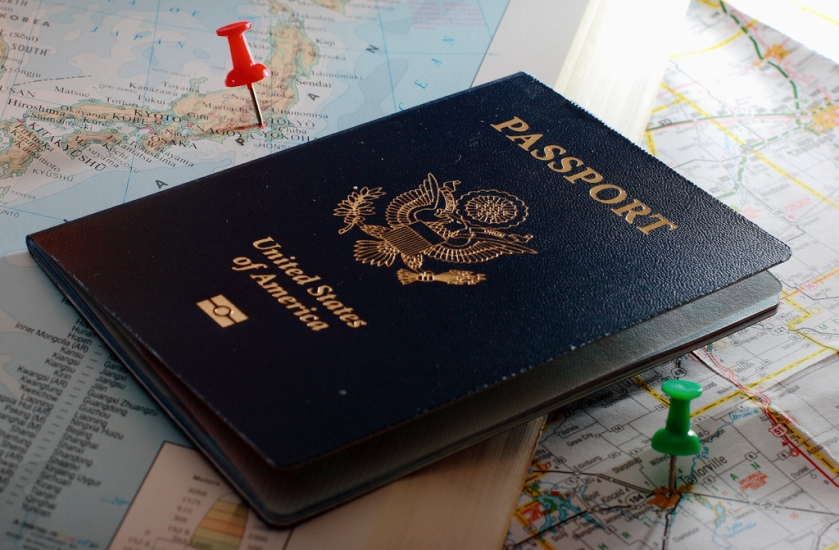Italians have a theory that experiencing hot and cold air in quick succession results in illness. I have a theory that going back and forth between two cultures in quick succession results in one crazy, confused TCK.
Well, it’s part of the job. Without our first culture, there would be no third culture.
As a teen, navigating the waters of visiting your passport country can be tricky. Life is already a roller-coaster of emotions and when you throw in moving across oceans, it takes a few extra loops. One of its loops is returning “home,” where people will be confused why you put quotation marks around the word home.
In the five years my family lived in Italy, we only went back to Texas once. Besides a quick trip to resolve visa troubles and to be present for my grandpa’s funeral, I did not go back to the United States for three years after moving to Italy. Though it was hard being so far removed from my first home, I’m glad our time overseas was not peppered with trips between cultures.
I loved getting to experience every season and holiday in Italy and not having to constantly mentally switch between worlds. Also, like the old expression “absence makes the heart grow fonder,” the longer the wait between returning to the U.S., the more excited I grew when the time came to reenter the land of free refills and air conditioning.
For the few trips that we did take, the first days of being back in the U.S. were always filled with excitement. From seeing family and friends to munching on my favorite treats, I loved reuniting with my home. Of all the different stages you will experience when you visit your passport culture, this one is definitely the best.
Michaela Frantz, 18, a TCK who grew up in Germany, put it this way: “I was literally a kid in a giant candy store, and I had so much fun experiencing my favorite parts of the culture and discovering new ones. I also appreciated how people went out of their way to spend time with us since we were only back for a short time.”
But just as too much candy gives you a stomach ache, the excitement of being back in your original culture can turn into sour disappointment.
The first time I visited Texas, it was the summer before my freshman year of high school. I quickly exited the happy phase of our summer trip. Though the month was sprinkled with fun moments with friends and family, I clearly remember feeling so different from everyone around me. I didn’t have the same clothes or purses or makeup, and I had never been to the restaurants they wanted to show me. Everything was overwhelming, and people were expecting me to know things I didn’t. I was experiencing culture shock.
I looked up the term culture shock in the dictionary. The definition is “a state of bewilderment and distress experienced by an individual who is suddenly exposed to a new, strange, or foreign social and cultural environment.” That is what I felt that summer. And you will probably feel this too. It’s such a strange feeling because you’re not technically experiencing a new culture, but an old culture, and yet, it is new.
“I hardly ever felt at home, even though I was born and raised on this soil,” Michaela explained. “The hardest part of [going back home] was the ever-present feeling of living a fragmented life where I didn’t truly belong anywhere.”
When your heart and head are both so confused, it can be a little sad and lonely. You begin to realize that life at “home” continued to happen even after you left, that the culture continued to shift, that friends continued to change, and you transformed as well. What’s a TCK to do?
First, accept what you feel. In a parenting article on helping TCKs re-enter the US, Babble blogger Rachel Pieh Jones writes, “Let [your children] feel what they are feeling. They could be thrilled about being in America or grieving about not being in their host country. They could feel both in the space of an hour and all your kids might feel something different.”
Allow yourself the same advice. It’s ok to feel confused, overjoyed, misunderstood, and more all at the same time. Give yourself the space to process what you’re feeling.
I struggled with this. I didn’t accept that what I was feeling was ok – instead, I let my negative emotions control me. I remember snapping at my grandma and mom in a store one day because I didn’t like the jacket they wanted to buy for me. I felt overwhelmed, like no one was listening to what I was saying or wanting. And all of this over a simple jacket.
Know that emotions will come and go, but don’t let them control who you are or your actions. Acknowledge that what you’re feeling is normal, but don’t give your feelings too much attention. They don’t always deserve it.
Second, focus on what you do know. In the same article, Rachel urges parents to remind their kids of what they do know, rather than concentrate on all the faux pas they are making. Whether that’s reminding yourself of the new language you now can speak with ease in your adopted country or remembering the close friends you’ve made during your time overseas, focus on your personal accomplishments rather than failures.
In the same vein, Trent Seely, 18, a TCK from Hungary, told me that visiting his passport culture just made him more aware of all the positive aspects of his adopted culture. Appreciate the culture you are in, but remind yourself of all the wonderful things waiting for you at the end of your trip.
I clearly remember the feeling of relief when our plane landed in Florence after a long summer in Texas and we hopped in a taxi. The driver was speaking in rapid Italian as we wove through the ancient city, and I understood him. I could speak back to him as if I hadn’t been gone at all. And I knew exactly where I was and what streets we were on. I finally felt at ease because I was no longer flailing to understand the culture surrounding me, which is ironic since Italy used to be such a foreign, confusing culture to me.
I wish I had kept that knowledge close to me as we traveled back to the U.S. It’s important to remind yourself that no matter how lost you feel, there are places that you understand. Don’t let your cultural faux pas and loneliness rob your accomplishments.
Third, learn from your experiences. Not only have you changed, but the people and places you’re visiting have also changed. Take the time to listen, observe, and learn. One piece of advice I was given before moving overseas was, when in doubt, always carefully observe the culture and follow suit. Even though you’re in your passport culture, the same can apply. View it with the same excitement you would traveling to a new country.
In a blog post on relating to non-TCKs, Jessica Bradshaw, 21, a missionary kid who grew up in Papua New Guinea, wrote, “[Non-TCKs] are doing their best to relate to you. Even though they can’t understand what it’s like to be a TCK, they want to be a friend. You can share some about your experiences, but remember to listen, too.”
As I’ve thought about my time back in my “home,” I’ve learned a lot about myself – my weaknesses, my strengths, my methods of handling situations. It’s important to reflect on how your time in your passport country affects who you are. Not only should you be observing the culture and rediscovering your friends and family, but studying yourself as well.
Returning to your roots will take some courage, but keep in mind that this first culture is what propelled you toward your ultimate third culture. English writer G.K. Chesterton once said, “An inconvenience is an adventure wrongly considered.” Whether you view your trips home as an inconvenience or a treat, choose to first see them as an adventure.
Featured image courtesy of jpmath on Flickr.


I’m curious to find out what blog system you’re working
with? I’m having some small security issues with my
latest blog and I’d like to find something more risk-free.
Do you have any recommendations?
LikeLike
Hi Courtney!
I thought you would enjoy knowing that I used this article in my English as a New Language class. It sparked a good conversation about how our cultures change in our absence. One student shared how he arrived at the airport and confidently got a taxi but realized he didn’t remember the way home!
Matthew
TCK Portugal/US
PS: I know Jessica Bradshaw. Wise words from her!
LikeLiked by 1 person